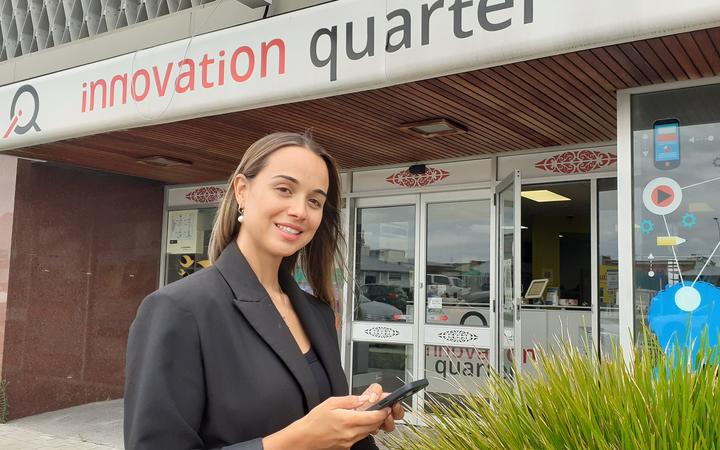Whanganui District Council’s approach to climate change has helped the city win international recognition as a leading model for economic and social development – for the seventh time.
Te Pūwaha, the Whanganui port revitalisation project, is an example of how organisations are collaborating to improve the city, one of those involved in the smart city entry says. Photo: Supplied
Whanganui has again been named a Smart21 City by US-based think tank, the Intelligent Community Forum, and is the only New Zealand town or city to make this year’s list.

The 21 communities around the world can now compete to become a top-seven finalist to be named Intelligent Community of the Year.
Economic development agency Whanganui & Partners, which is funded and follows strategic direction set by Whanganui District Council, said initiatives in areas including work, innovation, equality and inclusion were key components of the Whanganui application but the council’s approach to sustainability and its digital strategy tipped the balance.
Following community consultation and discussion, the council declared a climate emergency in 2020 and committed to taking action on climate change.
A climate change strategy, written in collaboration with iwi, outlined priorities and goals for the council, including:
- leading by example
- working collaboratively
- increasing resilience
- and encouraging everyone in the community to play their part.
The strategy was resourced in December 2021 with the appointment of a council climate change adviser.
The council’s digital strategy, passed in 2019, built on the early rollout from 2012 of ultrafast fibre, which put Whanganui ahead of most of Aotearoa, Whanganui & Partners said. The strategy has an ambitious vision to “harness digital opportunities to empower and enrich our community”.
The council appointed connected community adviser Jo Buckingham in April 2021 to drive the strategy’s action plan. Buckingham put together the Smart21 City application with the support of Whanganui & Partners strategic lead capability Lou Tyson Walker.

Lou Tyson Walker Photo: LDR / Moana Ellis
Tyson Walker said one of the early benefits of participating was going through the application process itself.
“It provided a snapshot of our community’s global competitiveness.
“It was really good going through the process to re-evaluate where we are as a community. You’re being benchmarked against all of the other applicants, so to be able to come out in the top 21 is humbling.
“Being announced as a smart community means we’re one of 21 global communities that are models for growing local economies, societies and culture, and the things that can really make Whanganui a good place to live, raise whānau, build a career or a business, and bring forward the next generation.”

Central Whanganui Photo: 123RF
She said they may still apply to become Intelligent Community of the Year with new collaborations already happening which would make the city a contender.
“Being a smart city is about applying technology to make this city work better, faster, cheaper and all those kinds of things. But ‘intelligent’ means something more: it’s bringing in collaboration in the planning and carrying out of our innovations and our projects.
“We can see that with the port project Te Pūwaha. It’s bringing in different organisations to work collaboratively together to really create change.”
Te Pūwaha is the Whanganui port revitalisation project. It operates under the legal status of the Whanganui River as Te Awa Tupua and is a partnership between Whanganui River hapū and iwi and four other groups invested in the development – Whanganui District Council, Horizons Regional Council, Q-West Boat Builders and the Whanganui District Employment Training Trust.
Tyson Walker said the application process itself gathered information from both local government and organisations outside of it.
“It was a collaboration across organisational boundaries and that is seen as one of the success factors for communities in the 21st century,” she said.
Whanganui was first named a smart city in 2013. Since then, it made the list annually until 2017, and again in 2020. In 2016, the city was a top-seven finalist. The 2022 selection marks the beginning of an eight-month process which will end with the naming of the 2022 Intelligent Community of the Year in October.
The Smart21 communities of 2022 are: Adelaide, South Australia, Australia; Alexandria Lakes Area, Minnesota, US; Belfast, Northern Ireland, UK; Binh Duong Smart City, Vietnam; Curitiba, Paraná, Brazil; Durham Region, Ontario, Canada; East Central Region, Minnesota, US; Elefsina, Attica, Greece; Estevan, Saskatchewan, Canada; Fredericton, New Brunswick, Canada; Township of Langley, British Columbia, Canada; City of Maple Ridge, British Columbia, Canada; Markham, Ontario, Canada; New Taipei City, Taiwan; Philadelphia, Pennsylvania, US; Prospect, South Australia, Australia; Rochester, New York, US; Seat Pleasant, Maryland, US; Sunshine Coast, Queensland, Australia; Townsville, Queensland, Australia; Whanganui, New Zealand.
Local Democracy Reporting is a public interest news service supported by RNZ, the News Publishers’ Association and NZ On Air.